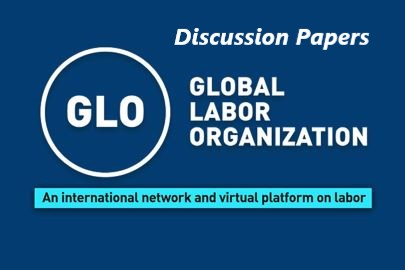A new GLO Discussion Paper finds a decreasing trend in subjective poverty in 16 of 28 countries. Conversely, the official relative income poverty indicator exhibits increasing trends in eleven countries, with decreasing trends in only four countries.
GLO Discussion Paper No. 892, 2021
Trends in subjective income poverty rates in the European Union – Download PDF
by Želinský, Tomáš & Mysíková, Martina & Garner, Thesia I.
GLO Fellow Tomas Zelinsky

Author Abstract: When developing anti-poverty policies, policy makers need accurate data on the prevalence of poverty. In this paper, we focus on subjective poverty, a concept which has been largely neglected in literature, yet remains a conceptually appealing way to define poverty. The primary goal of this study is to re-examine the concept of subjective poverty measurement and to estimate trends in subjective poverty rates in the European Union. Our estimations are based on a minimum income question using data from a representative survey, EU-SILC, and we find a decreasing trend in subjective poverty in 16 of 28 countries. Conversely, the official relative income poverty indicator exhibits increasing trends in eleven countries, with decreasing trends in only four countries. We believe that these trends may reflect changes in societies which have not been previously captured, and our results thus enrich the existing data on general poverty trends in the EU.

GLO Discussion Papers are research and policy papers of the GLO Network which are widely circulated to encourage discussion. Provided in cooperation with EconStor, a service of the ZBW – Leibniz Information Centre for Economics, GLO Discussion Papers are among others listed in RePEc (see IDEAS, EconPapers). Complete list of all GLO DPs – downloadable for free.
The Global Labor Organization (GLO) is an independent, non-partisan and non-governmental organization that functions as an international network and virtual platform to stimulate global research, debate and collaboration.
Ends;

